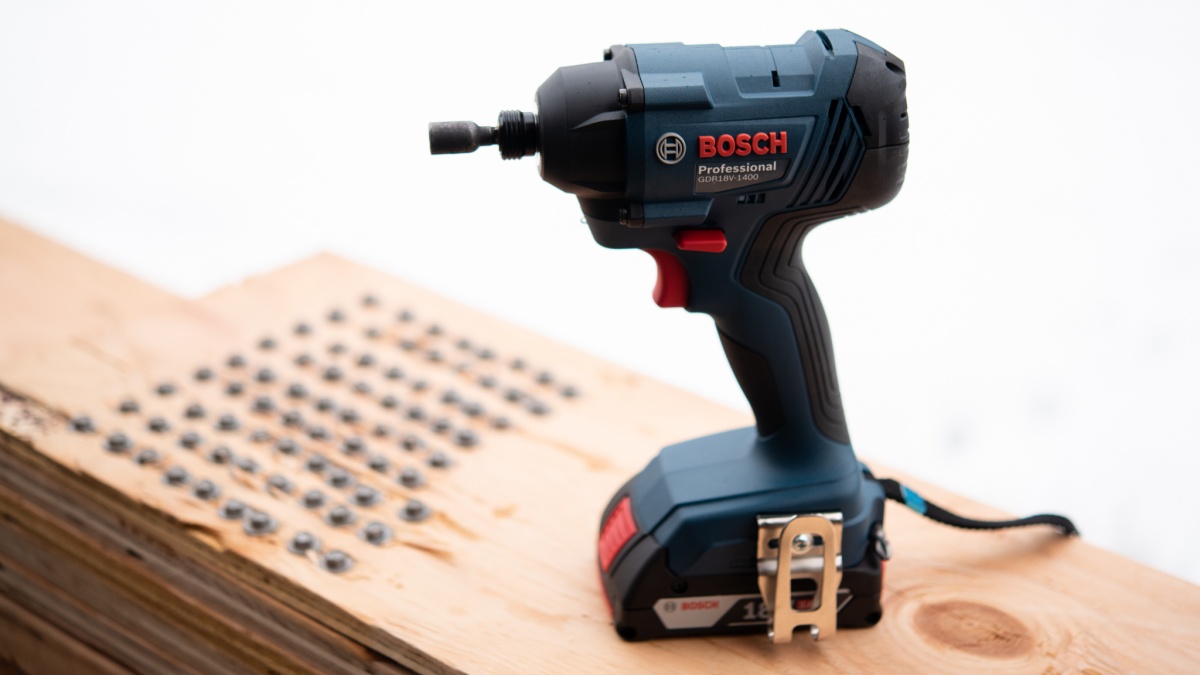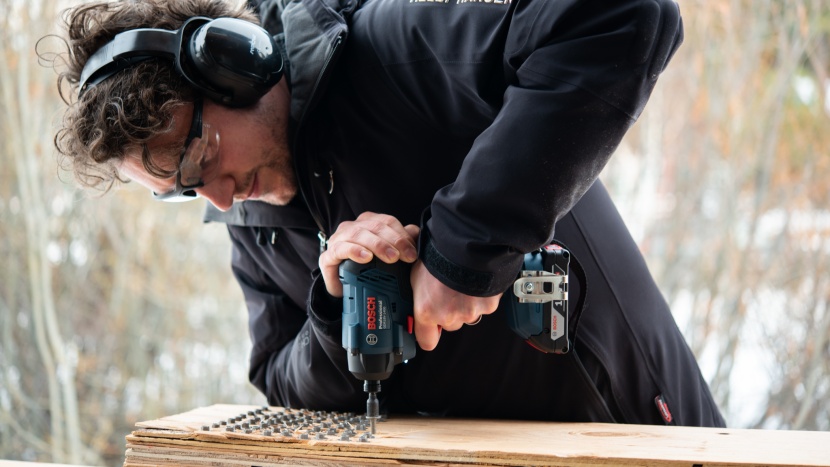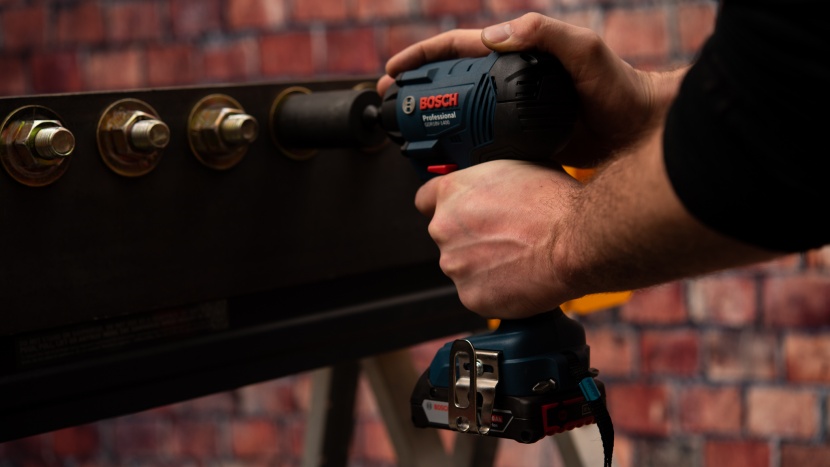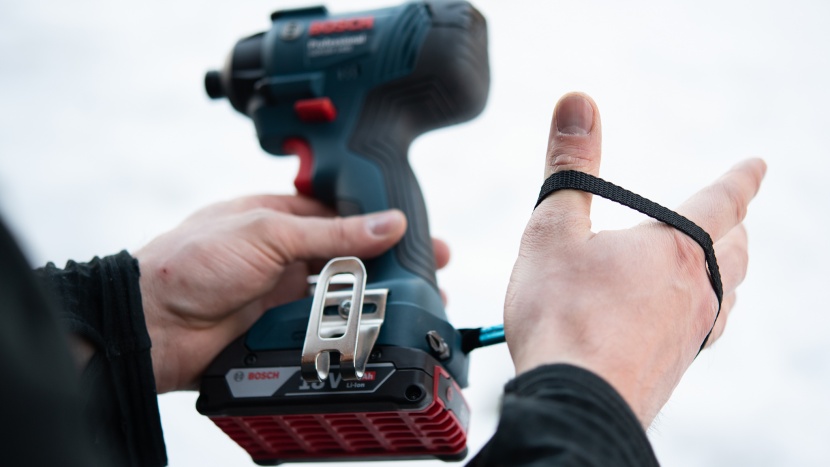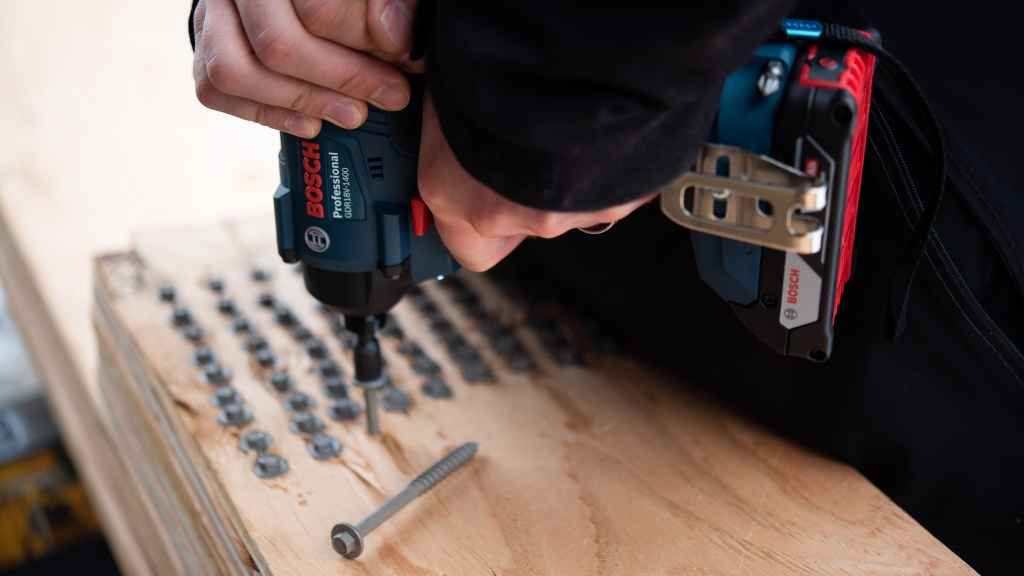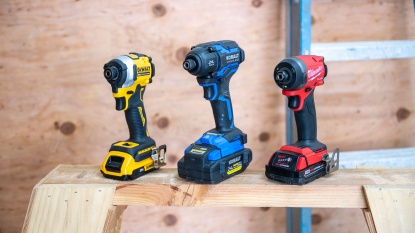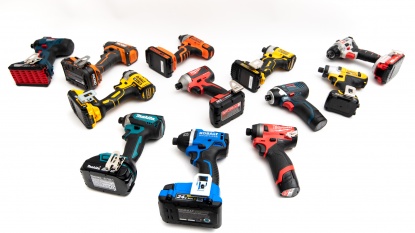
Our Verdict
Our Analysis and Test Results
The GDR18V will effectively drive in most smaller screws, so it might be worth considering if you are already invested in Bosch's 18-volt battery line of tools. But this is really the only reason we could come up with why you should check out this tool.
Speed
Regrettably, there wasn't much we found to like when it comes to the actual driving performance of this impact driver. It delivered significantly below average results in our speed test, with the Bosch failing to keep up with setting ledger or lag bolts. It took an average of 9 seconds to sink a 3-⅝" ledger screw into a stack of plywood and 7 seconds to drive it into stacked 2x12s, which is more than twice as long as the speediest impacts.
It also took over a minute to drive a ½"x3" lag bolt to the full depth — in a properly predrilled hole, of course — and almost 30 seconds to remove it. This pales in comparison to impact drivers, which could set this screw in 15 seconds or less and remove it in 5.
Torque
The GDR18V did a little better in our torque test but not by much. We found its performance very inconsistent in our tightening and loosening tests with a ¾" nut, earning it some disappointing scores. It maxed out tightening the nuts to 115-foot pounds and took some time to break them loose if we only tightened them to 100-foot pounds. Other models could reliably crack them loose from 300-foot pounds and tighten them just as much.
Convenience
While most of our observations regarding this impact were fairly negative, we found a few things that we liked about this product. The Bosch provides a decent amount of light if you are working in a dark area. It's bright and doesn't cast a shadow across where the bit is, but we were a little bummed that the light won't turn on unless the chuck is actually rotating.
The tool is also more compact, only measuring 152 mm from front to back. It also has an integrated bit holder at the back of the battery for the included double-sided Phillips bit, a belt clip, and an included wrist strap. This impact doesn't have different fastening modes and lacks a quick-insert bit holder.
Battery
We also thought the Bosch botched it in our battery test, with the battery dying disappointingly quickly. We alternated between setting 14 ledger screws and driving in and removing a lag bolt from our speed tests to compare performance, with the GDR18V failing to complete two full cycles before calling it quits.
Noise
The GDR18V is relatively noisy when driving in screws, with our sound meter recording an average of 101 dBa at the level of the user's ear. This is loud enough that you will want to consider using hearing protection for your comfort. You should always consult the manufacturer's instructions to ensure you use these tools safely and with all the proper protective equipment.
Should You Buy the Bosch GDR18V?
Overall, the 18-volt Bosch GDR18V fell far short of our expectations and scored close to the bottom of the pack. It will handle light to moderate-duty tasks alright, but we would be hard-pressed to find a reason to recommend this tool over tons of other ones unless you are set on sticking with 18-volt Bosch tools.
What Other Impact Drivers Should You Consider?
The Bosch's price does make it a reasonable bargain buy, but there are still some slightly less expensive tools that we thought performed a bit better and that we would preferentially recommend if you are on a limited tool budget. Notably, for a few dollars more, you can upgrade to the Milwaukee M18 Fuel, a top-of-the-line impact driver. But if you want to save a few bucks, the Ryobi P238 presents an excellent balance of value and performance.


